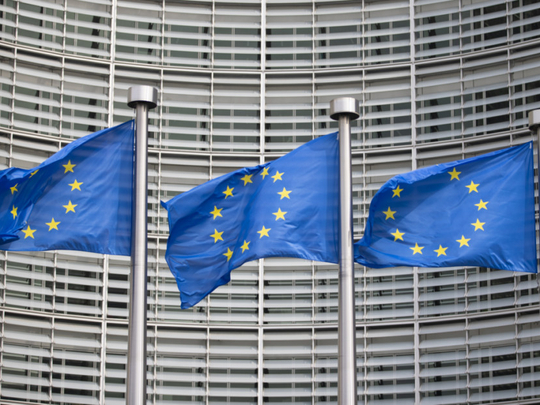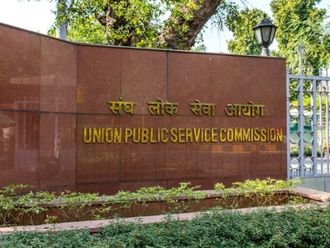
US President Donald Trump’s threatening of European allies keeps making headlines. There is talk of the transatlantic alliance breaking up. But developments in Italy and the rise of anti-EU parties elsewhere suggest that Europe is untying its own moorings as well. In fact, we risk sleepwalking back to the geopolitical quagmire of the 19th century.
Back then, the main principle of European relations was the “concert of powers”. The powers calling the shots were Great Britain, Russia, France, Austria-Hungary, Germany (once it was unified in 1871), and the Ottoman Empire, despite its dwindling force in the Balkans. Except for Austria-Hungary, which dissolved in 1918, all of these players are restive once more.
Russia pursues 19th-century objectives of territorial aggrandisement, with 20th-century propaganda methods and 21st-century hybrid warfare. Turkey asserts itself as an independent player, breaking ranks with Nato partners and flouting conditions necessary for joining the European Union.
After Brexit, the UK will re-emerge as a more autonomous and isolationist player — even if much reduced — despite the Brexiteers fantasising about “ empire 2.0 “. Much has been written about Germany’s return to centre stage and, for sure, it has taken some big power liberties in changing energy and immigration policies without consulting its partners. France is the latest returnee, with President Emmanuel Macron trying to shape developments more than any of his predecessors since Francois Mitterrand.
The large powers of the 19th century played in a different league from all the other states of Europe, which were more objects than subjects of international relations. Russia in particular would like to restore that state of affairs. The Kremlin tried to negotiate with the West about Ukraine’s fate without involving the Ukrainian government. While the West refused, the main negotiating group, the “Normandy format”, has a 19th-century feel to it as it only includes Russia, France, Germany and Ukraine, but leaves out the EU, which would represent all its member states.
A growing role of large states can be seen inside the EU, too. Take Germany determining the response to the euro crisis. But the EU is still a different world from the 19th century. Smaller member states have rights, votes and a voice they could only have dreamed of back then.
A return to 19th-century geopolitics would not only weaken the small states, it would also reawaken fundamental instability in the relations between nations. The “concert of powers” — and the smaller states aligned with it — spent huge political and diplomatic energies on a permanent poker game of shifting alliances. When the German emperor Wilhelm II dismissed Otto von Bismarck as prime minister in 1890, he also ended Bismarck’s special treaty arrangements with Russia — previously a defining feature of European relations.
Today we see such volatility on the rise again. Not long ago, Vladimir Putin and the Turkish president, Recep Tayyip Erdogan, were at loggerheads; today they are best friends, a state of affairs that just serves their interests better. When it occupied and annexed Crimea, Russia tore up agreements on respecting Ukraine’s territorial integrity just 20 years after signing them.
Today we can see what this means.
Unlike 19th-century agreements between cabinets, the EU laid a solid foundation on which to build institutions for governments, businesses and citizens alike. Undoing that system is far more difficult than cutting the ties of loose 19th-century alliances. Britain’s exit from the EU will take much longer than many gung-ho Brexiteers had ever anticipated. The question was far more about when and where it would happen, than about whether. Diplomacy was about positioning one’s country for that event. Traumatised by two world wars, the EU’s members transformed the 19th century’s poker game into an orderly, permanent negotiation process based on the rules of the club. Perhaps less exciting, but far more stable, saving huge political and diplomatic efforts and reducing the risk of war inside the EU to practically nil.
An arch-realist, Bismarck understood the dangers. Once he had reunified Germany, he suffered from what he described as “the nightmare of coalitions”, the fear that the German empire might one day be encircled by enemies. This is how he described the volatility of Europe’s diplomacy: “We are tiptoeing on top of a lightning rod. If we lose the balance, we will fall deep.” He declared Germany had no territorial demands. Otherwise, he had no better solution than a complex web of treaties with other big powers, which did not survive his term in office. The EU, meant to surround Germany with friends, would have been his dream. The diplomatic poker of the 19th century had high stakes, because in the end war was considered a certainty.
Today, extreme rightwing forces seem to be most drawn to a return of supposedly unfettered 19th-century sovereignty. For small European states, that appears complete folly. Why would self-proclaimed nationalists want to withdraw their country from a guaranteed seat at the table to become pawns of the larger powers’ games? But a return to isolationism is an equal folly for the EU’s large member states. The likes of Britain, France and Germany may have once decided the course of the world, but today they are, on a global scale, merely mid-ranking players. Without the pooling of their power and resources, they will all be relegated to a second league.
The EU’s core raison d’etre is not lofty dreams of building a European nation. More realistically, it is the realisation that the hard lessons of realpolitik still apply.
— Guardian News & Media Ltd








